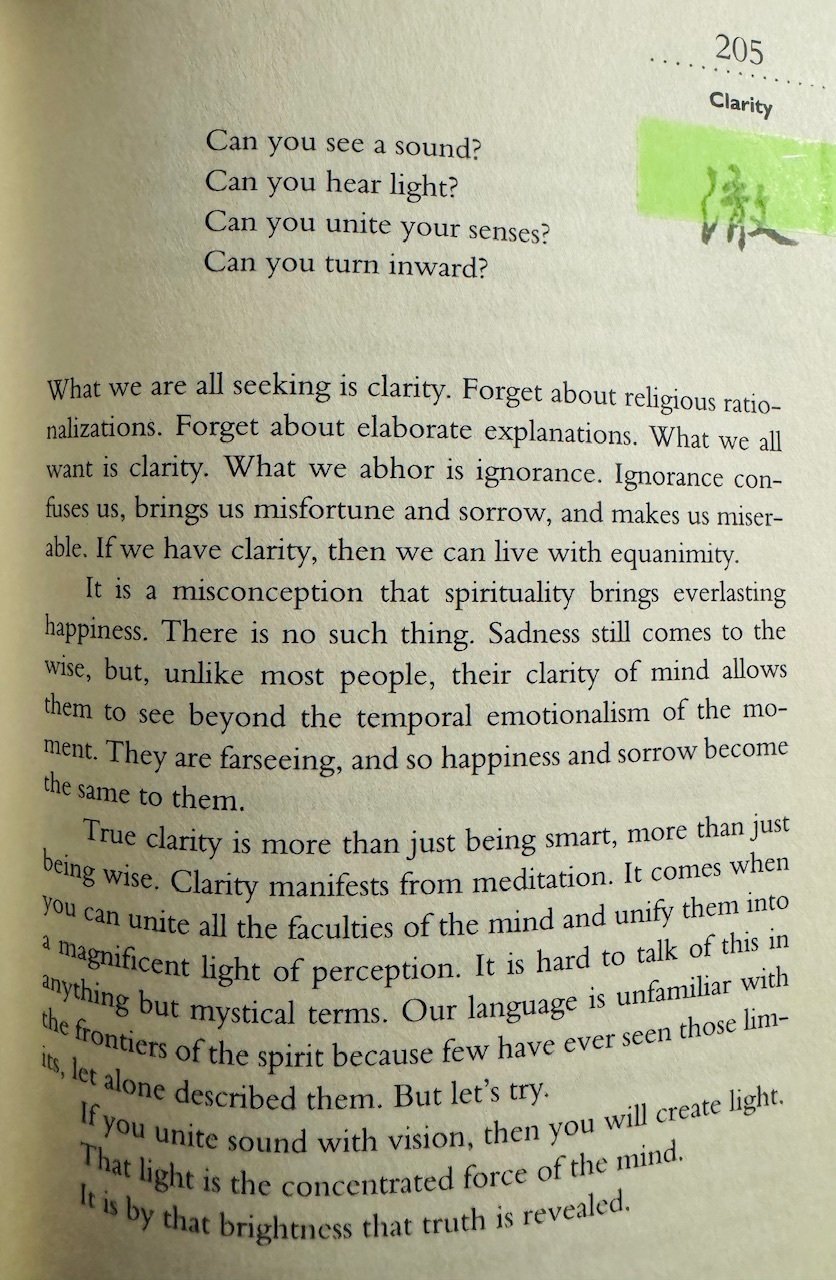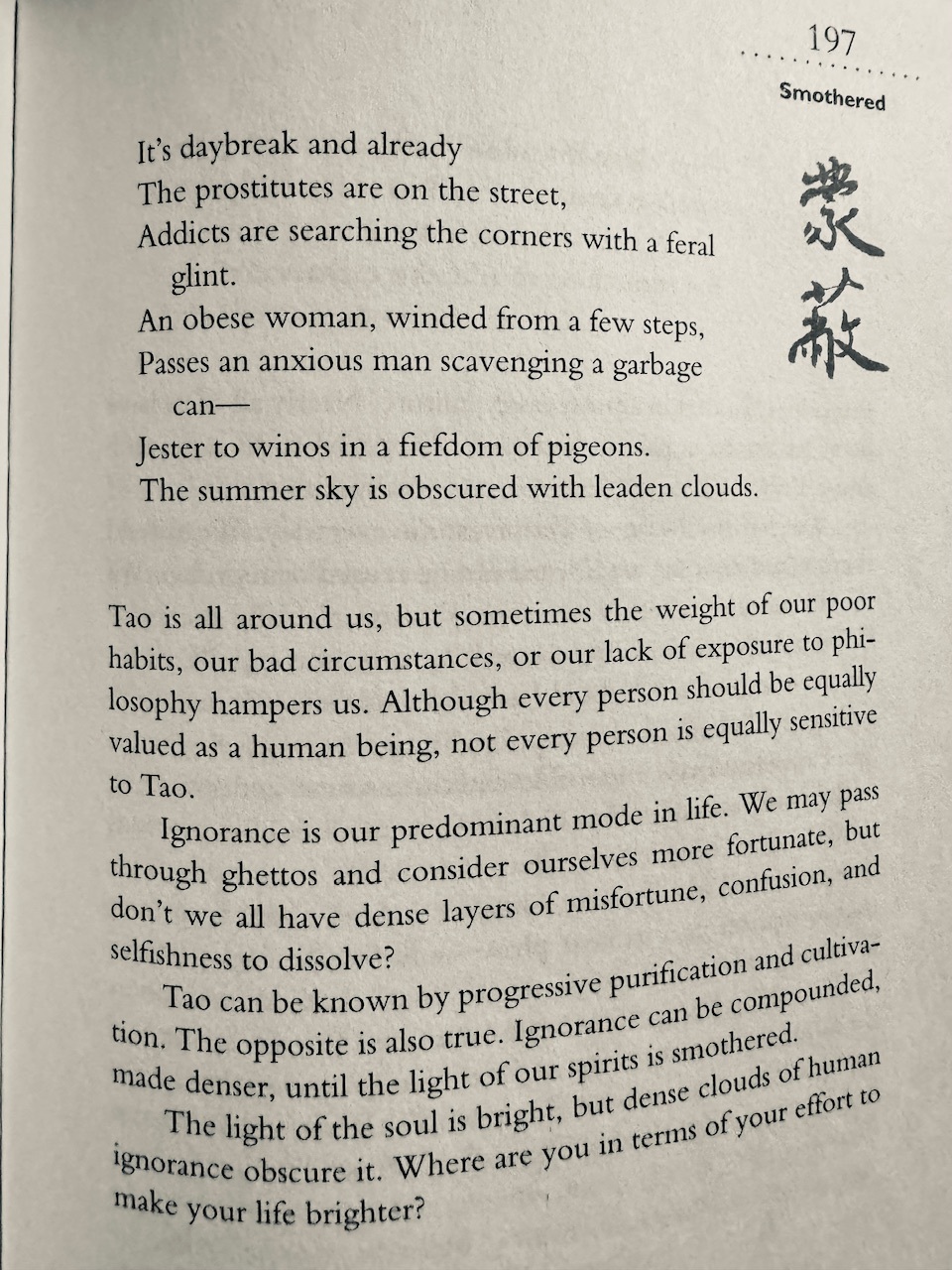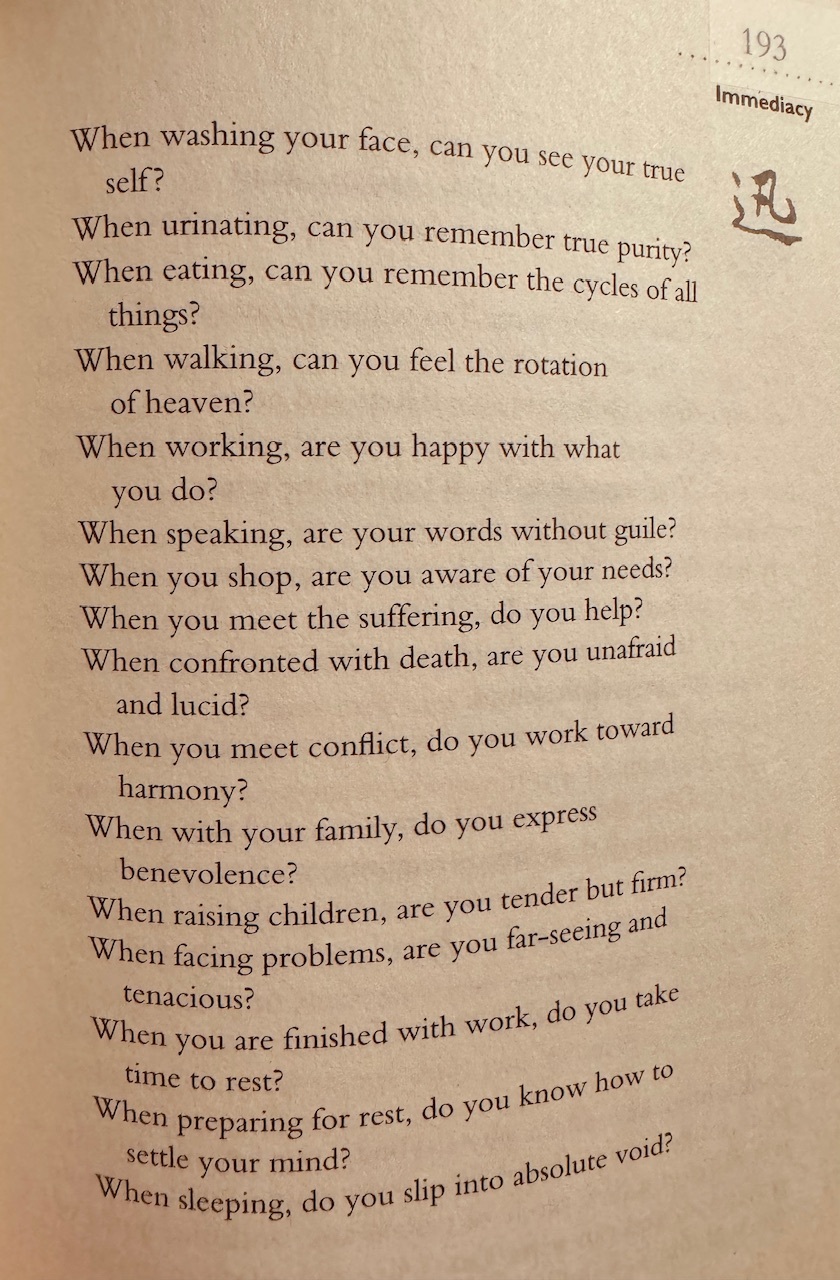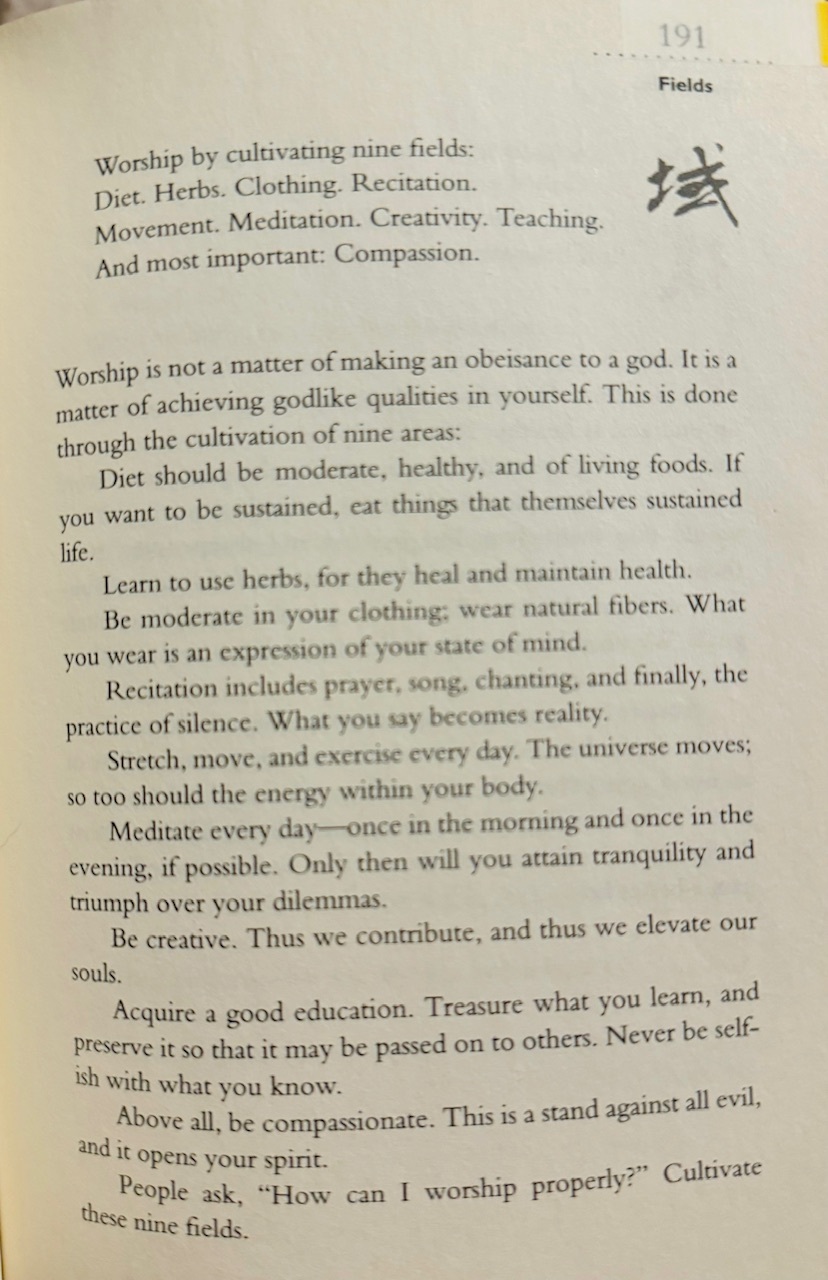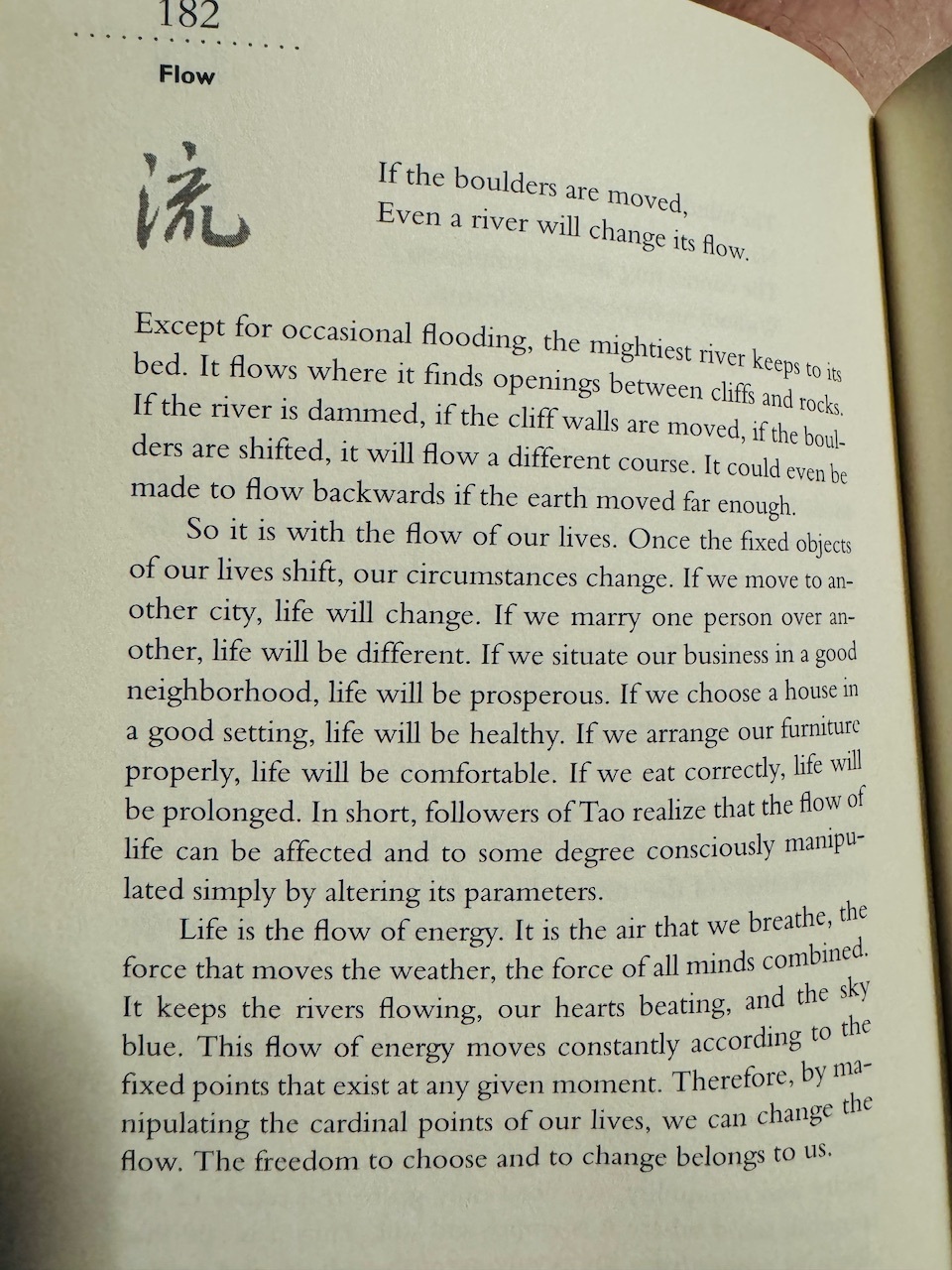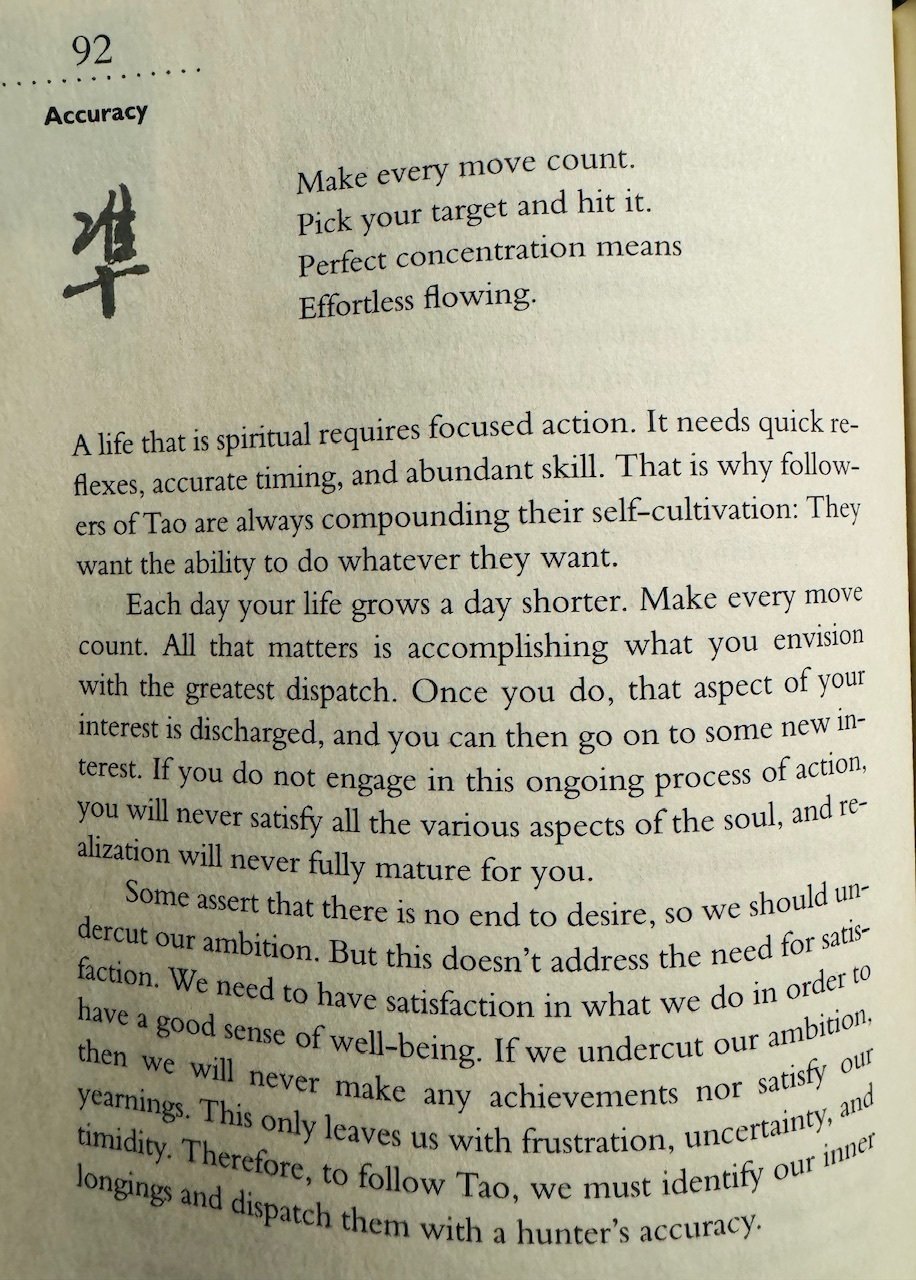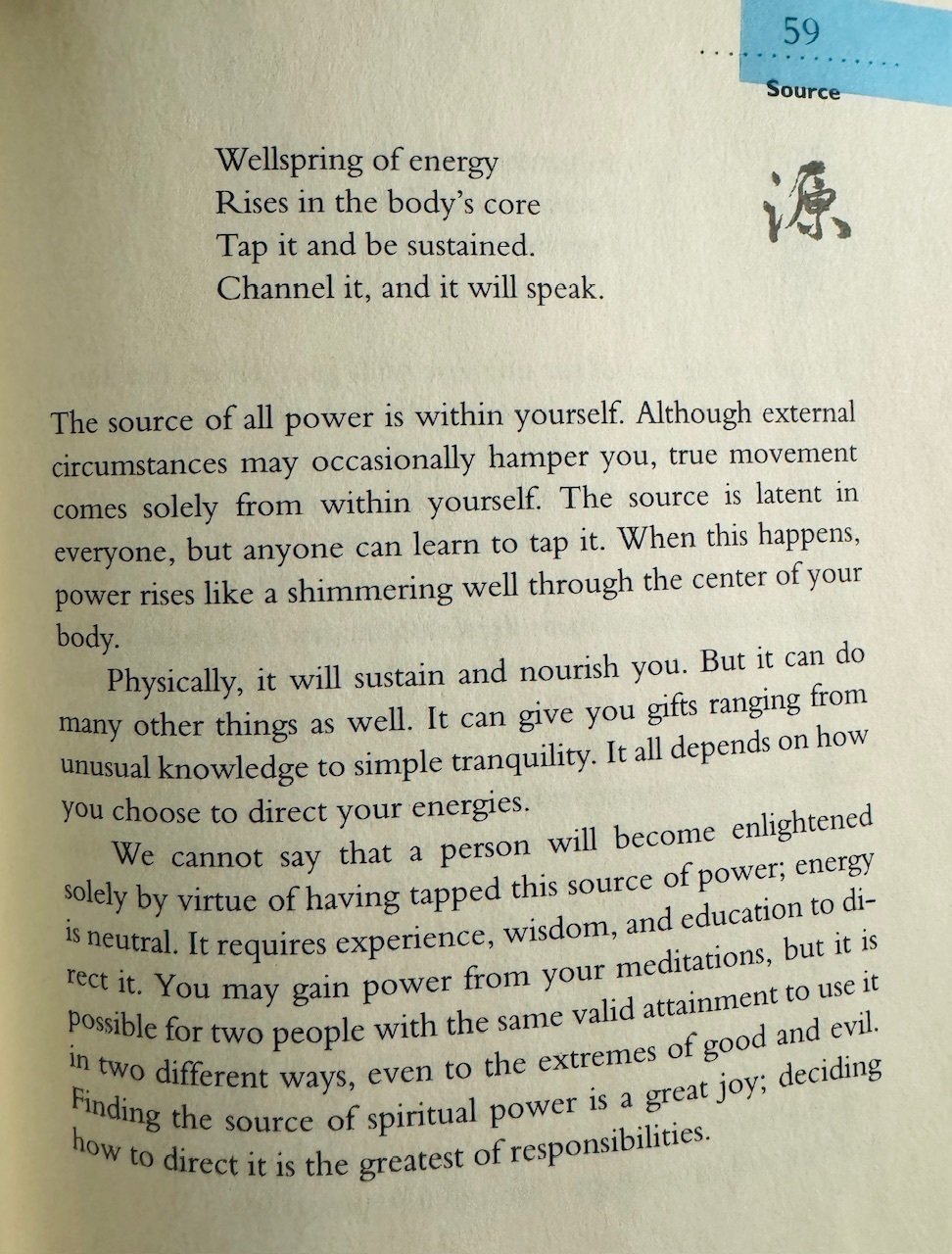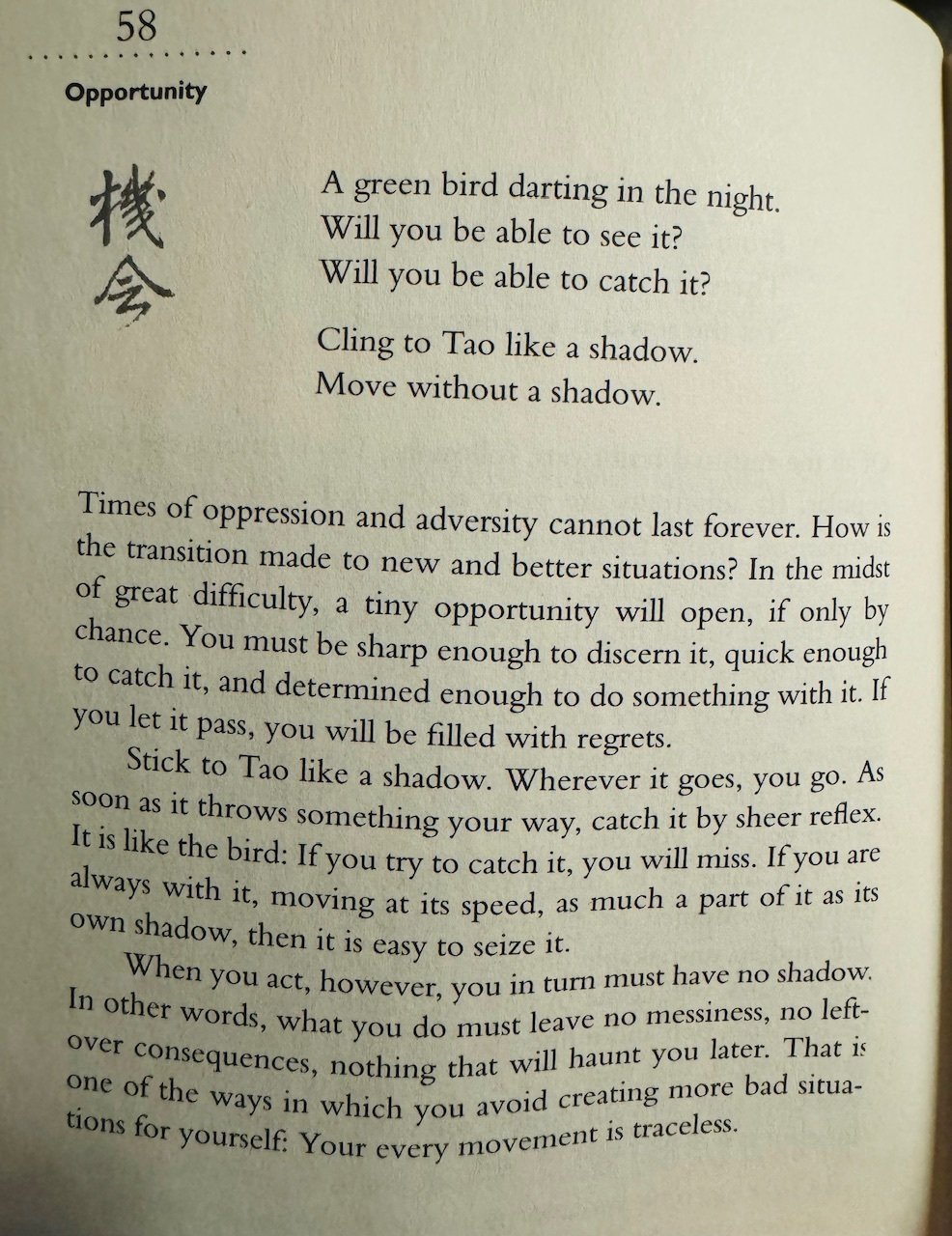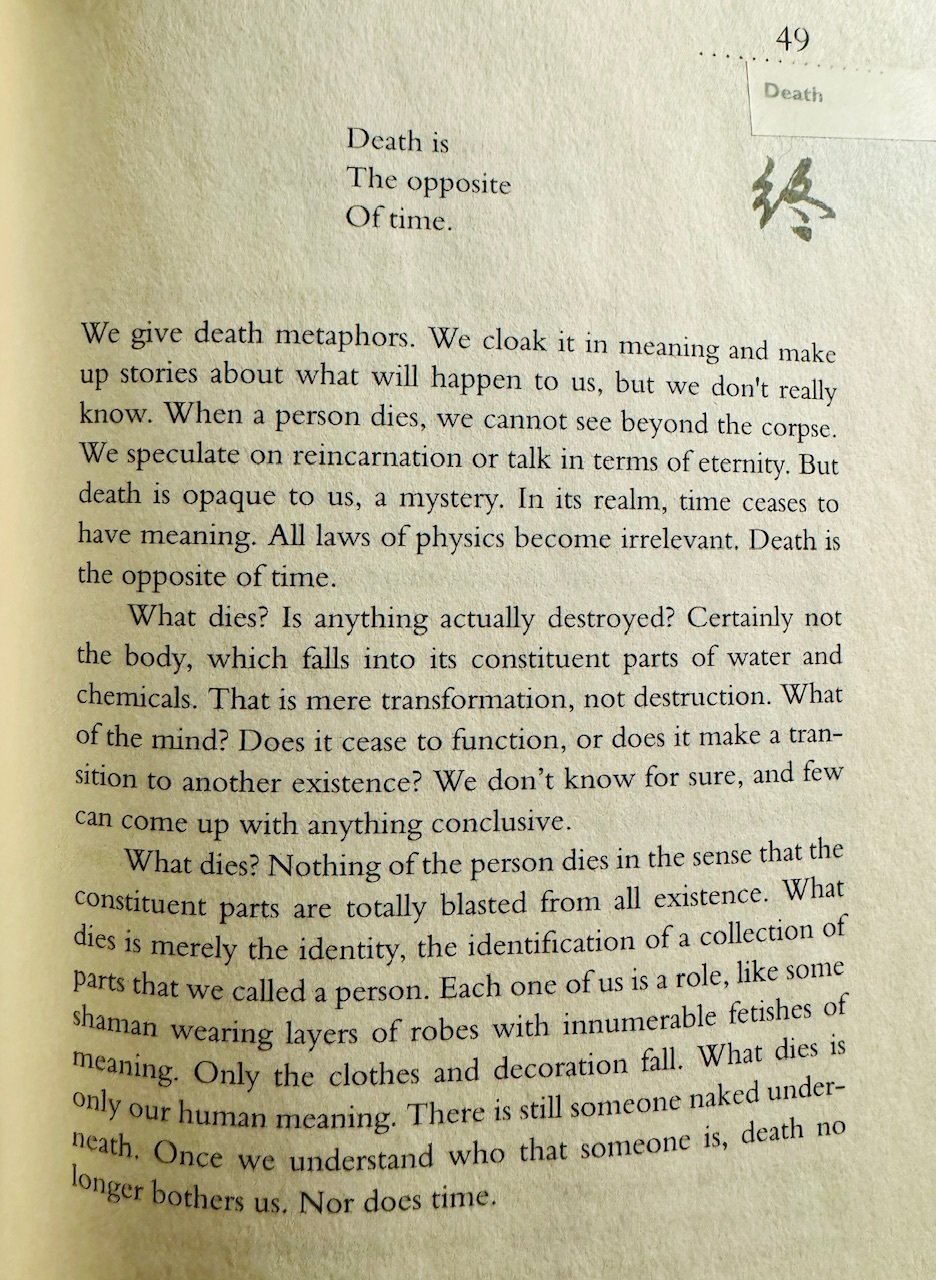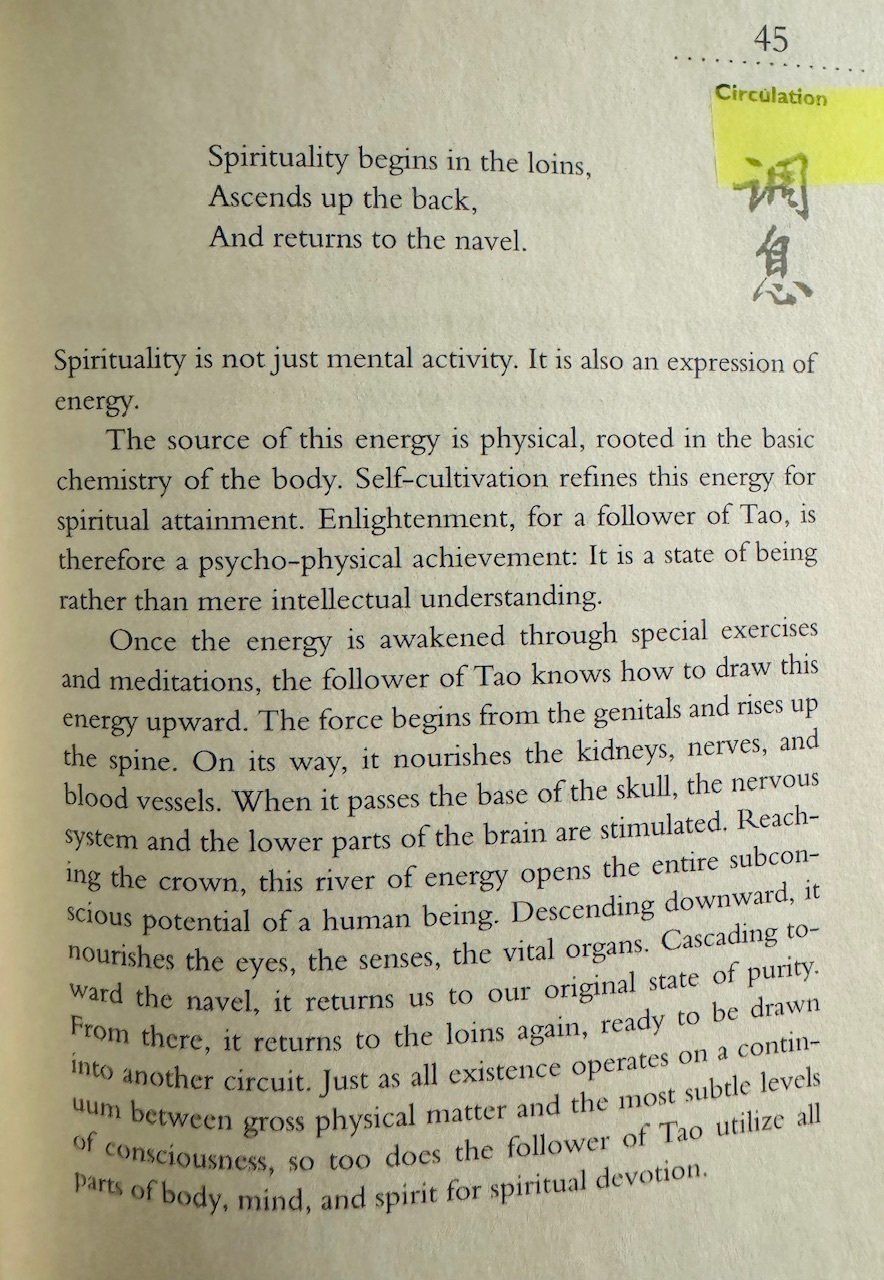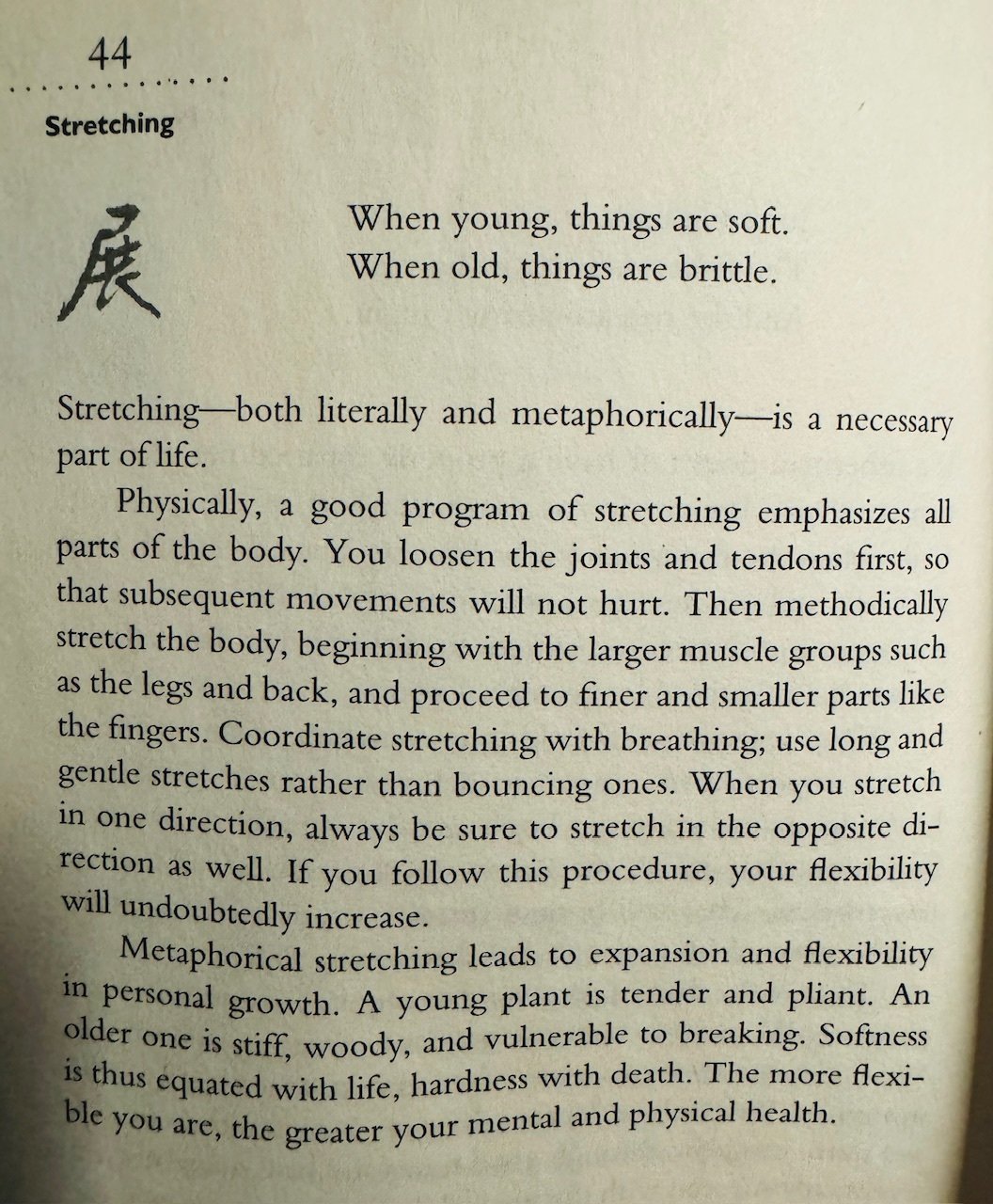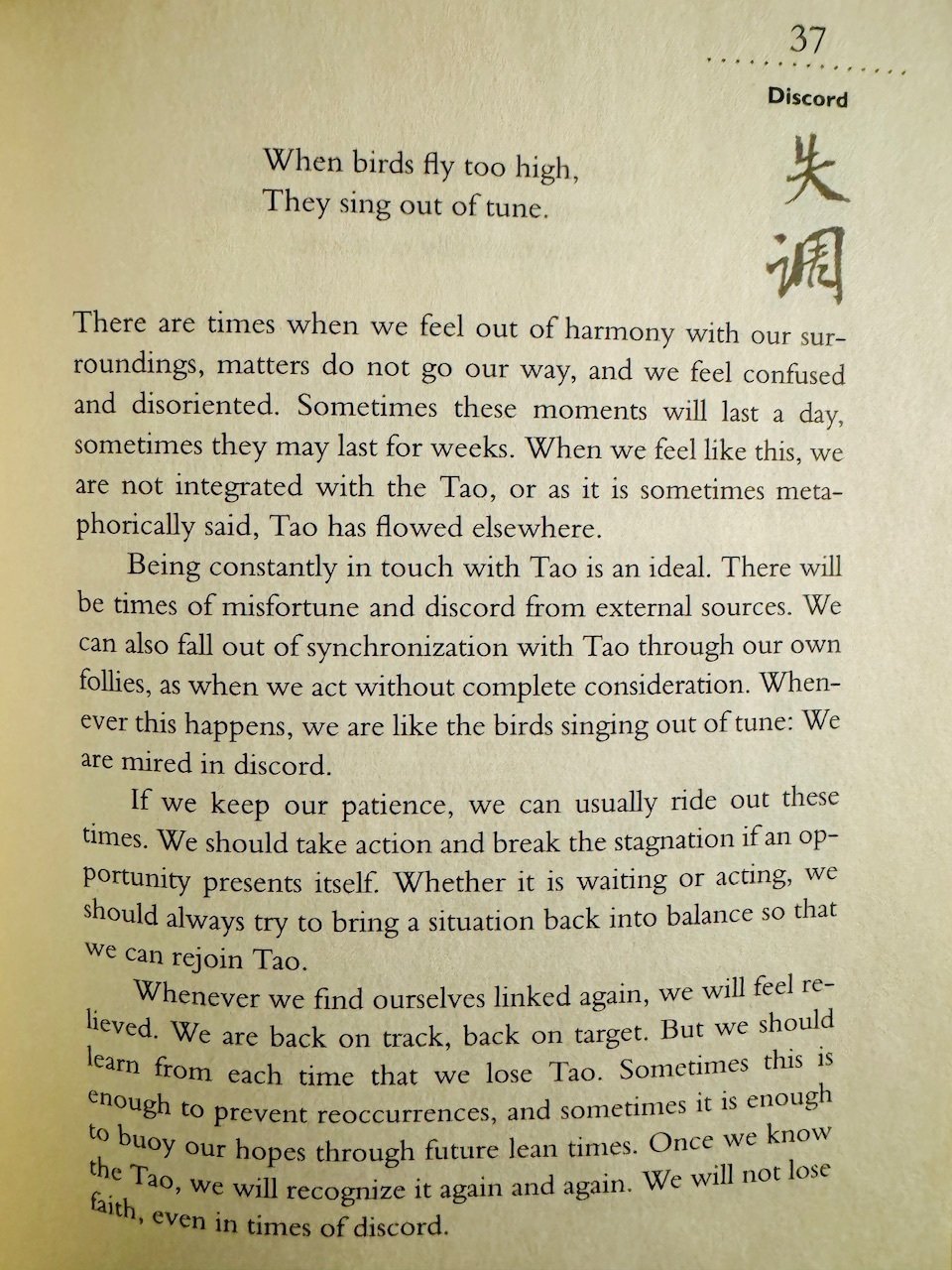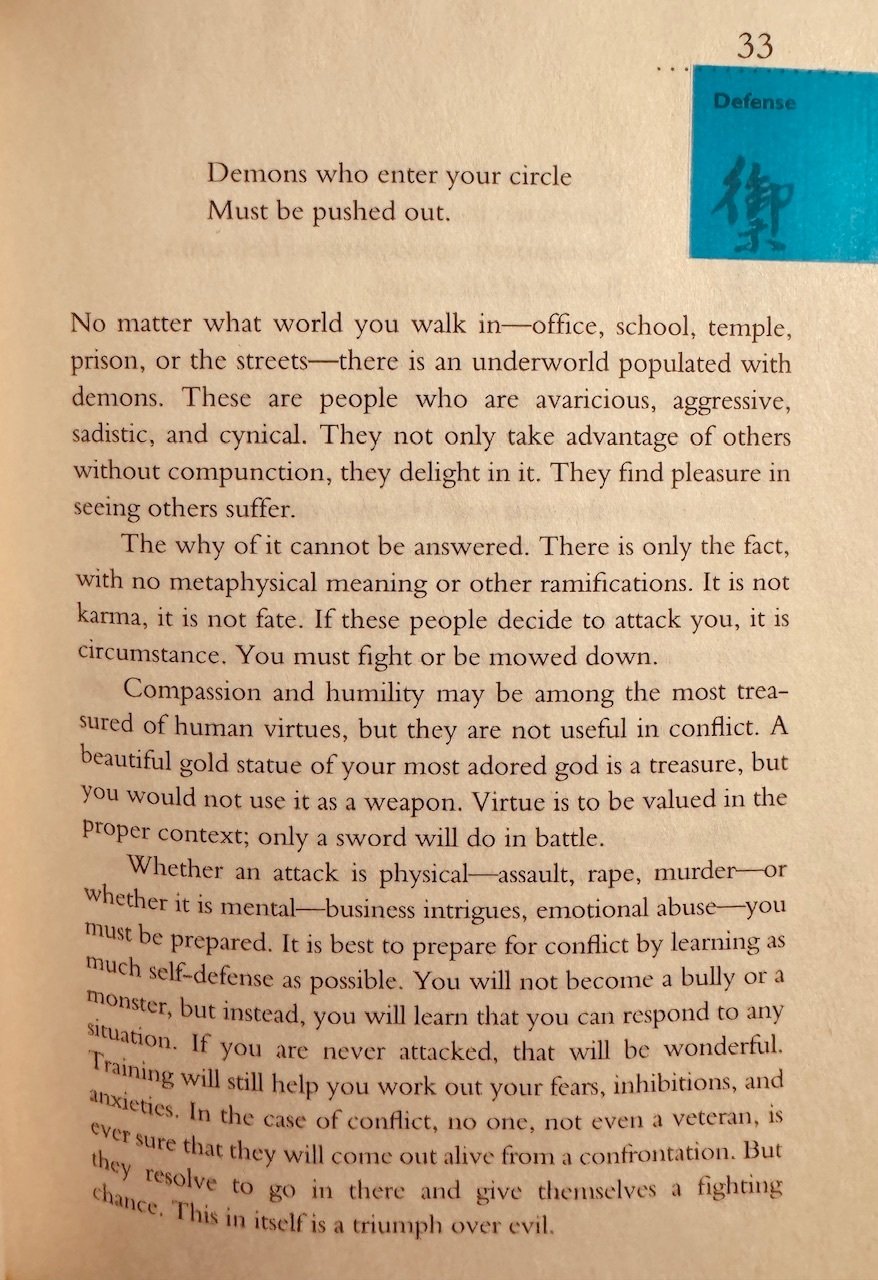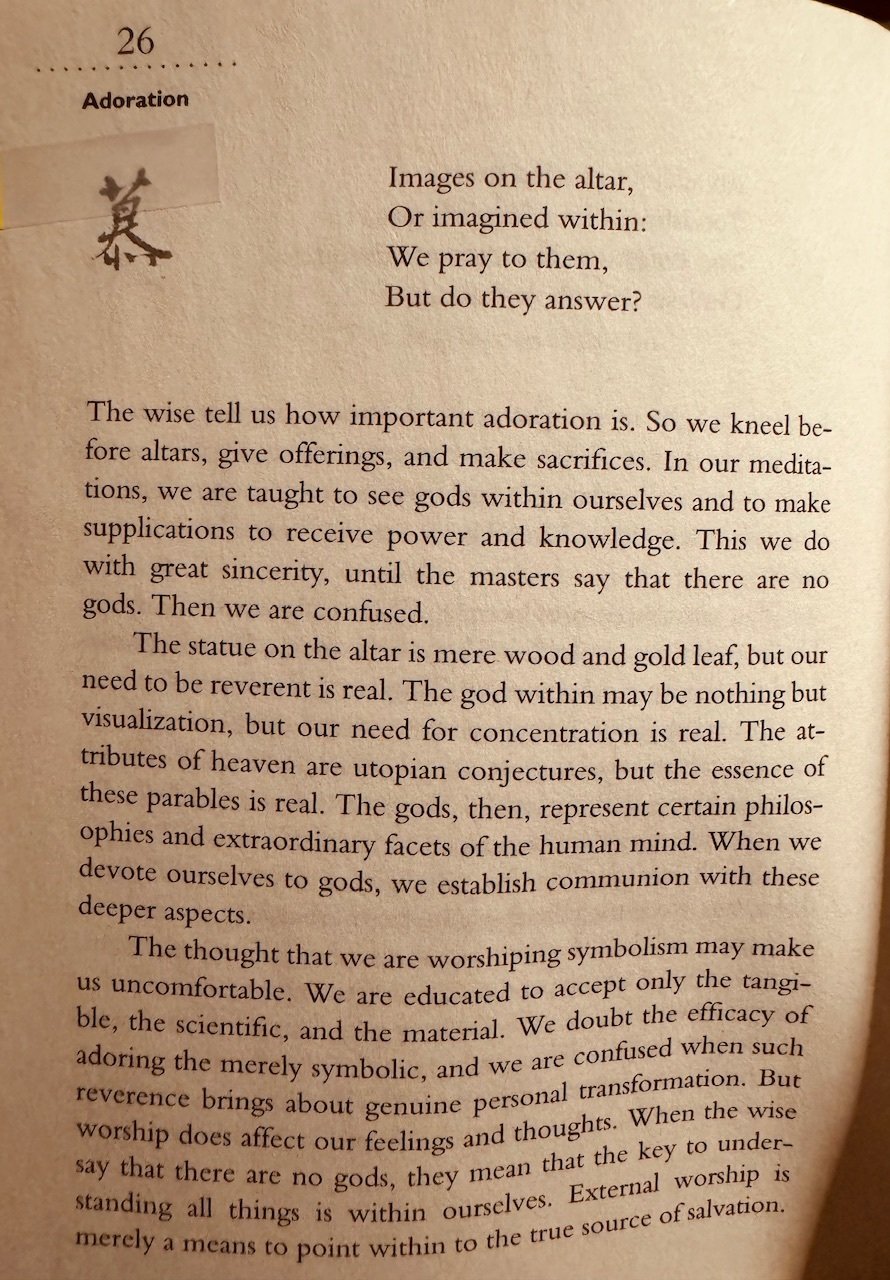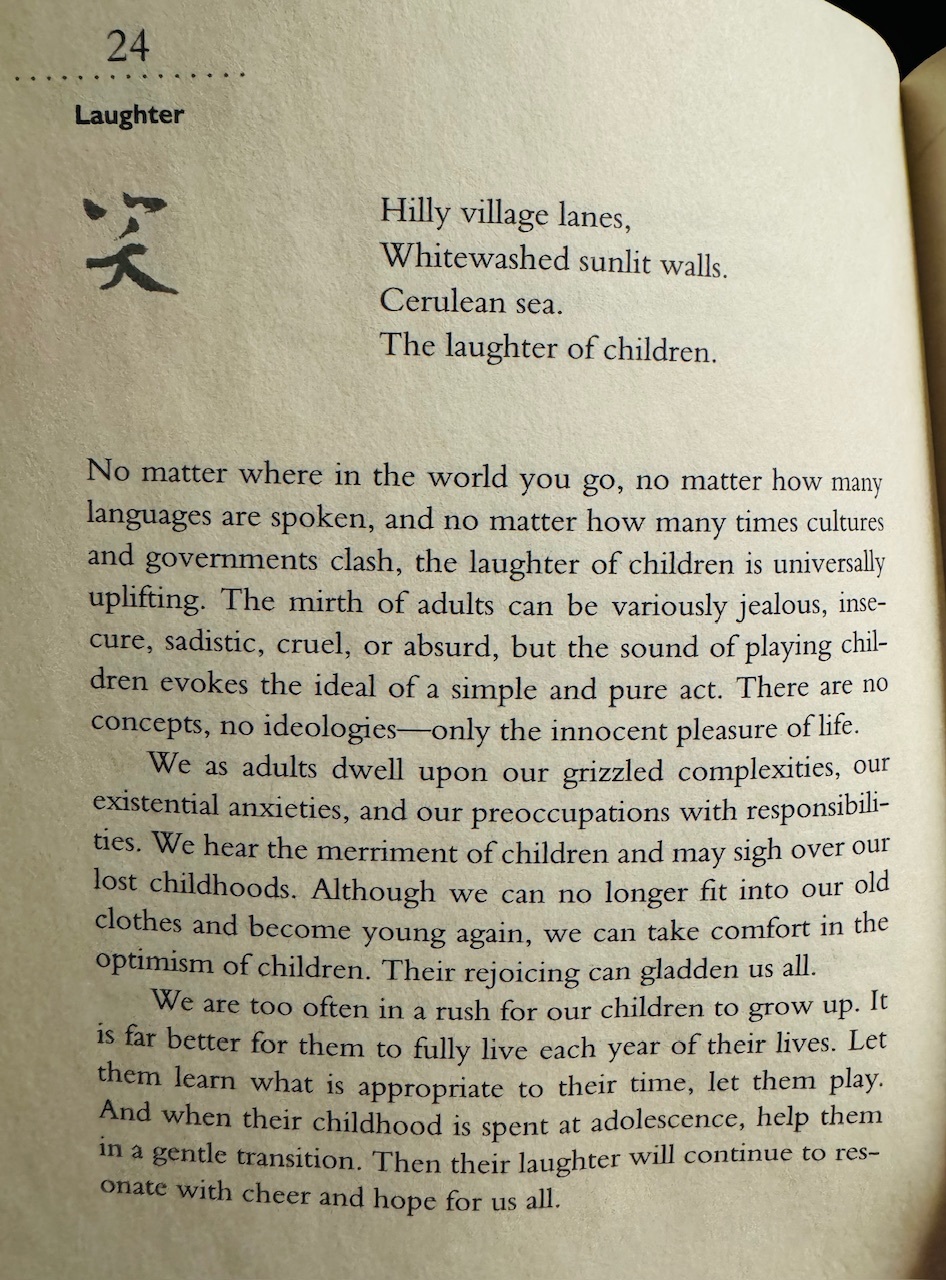132
Recognition
Spokes on the heavenly wheel
Keep rotation constant.
Those who follow Tao believe that Tao progresses through phases. They apply this principle to all levels of their outlok, from cosmology to the stages of growth in a person's life. On the macrocosmic level, they point to the rotation of the stars as evidence of smooth progression. In a person's life, they recognize the stages of aging beginning with childhood and ending with death.
Each one of us must go from phase to phase in our devel-opment. If we stay too long in one stage, we will be warped or stunted in our growth. If we rush through a stage, then we will gain none of the rewards or learning experiences of that phase.
Subsequent growth will be thrown off-balance; we will either have to go back and make it up, or, in the cases of experiences that can never be repeated, lose out on them forever. The proper discerning of these transitions is essential.
As we go through our various stages in life, it is important to mark the shift from one stage to another. Recognition is very important. We must understand that we are leaving behind one part of life and entering another. Sometimes, we mark this with a rite of passage such as graduation or marriage.
At other times, it may be a personal declaration made privately:
Whatever the reason, it is important to know exactly when to sose one phase and when to open the next. That is why it is said that one counts the spokes on the heavenly wheel as It turns: It is the measure of our lives.
